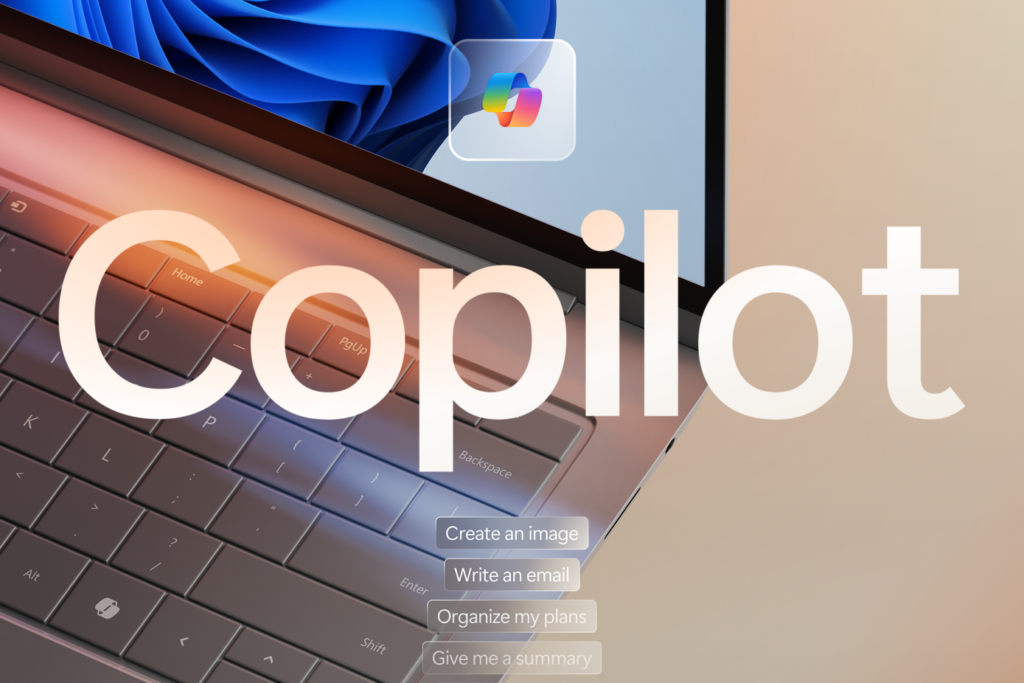
Microsoft clearly envisions Copilot, the overarching brand for its suite of AI-driven content-generation technologies, as a substantial future revenue stream. This outlook seems reasonable, as over 40% of the Fortune 100 reportedly participated in the Copilot early access program, according to the company.
Recognizing the significant costs associated with operating GenAI models in the cloud, transitioning Copilot from an expense to a reliable revenue generator necessitates sustained growth, preferably on a large scale.
With this in mind, Microsoft is introducing a consumer-oriented paid Copilot plan and easing the eligibility criteria for enterprise-level Copilot offerings. The objective seems to be to expand the potential customer base for paid Copilot services while enhancing the appeal of Microsoft’s existing offerings, particularly Word, Excel, and other applications within the Microsoft 365 suite, through integrated AI features.
Copilot Pro, the newly introduced consumer plan priced at $20 per user per month, grants users access to Copilot GenAI features within Word, Excel (currently in preview, and available only in English), PowerPoint, Outlook, and OneNote on PC, Mac, and iPad. It’s important to note that access to Copilot Pro is contingent on having a Microsoft 365 Personal or Family plan, as it does not come bundled with a Microsoft 365 subscription. Similar to the Copilot enterprise offering (Copilot for Microsoft 365), Copilot Pro functions as a premium add-on, resulting in a total cost of $27 per month (comprising $6.99 per month for Microsoft 365 Personal plus an additional $20 for Copilot Pro) for the lowest-tier Microsoft 365 subscription.
The capabilities of Microsoft 365 paired with Copilot Pro mirror those already available to enterprise customers. Within Word and OneNote, Copilot excels in writing, editing, summarizing, and generating text. In Excel and PowerPoint, Copilot transforms natural language commands into well-designed presentations and data visualizations. Additionally, in Outlook, Copilot assists in drafting email responses, offering toggles to adjust the length or tone as needed.
Apart from the enhancements to Microsoft 365, Copilot Pro subscribers receive 100 daily “boosts” in Designer (formerly Bing Image Creator), Microsoft’s AI-driven image creation tool, to expedite image generation, along with improved generation quality and landscape formatting options. Additionally, subscribers enjoy priority access to the latest GenAI models supporting Copilot, including OpenAI’s GPT-4 Turbo, promising enhanced performance during peak usage.
Looking ahead, Copilot Pro subscribers will gain the ability to switch between models based on their preferences. For those seeking greater customization, Microsoft’s upcoming Copilot GPT Builder will be available, allowing users to craft “Copilots” tailored to specific topics using sets of prompts.
It’s worth noting that Copilot GPT Builder bears a resemblance to OpenAI’s recently launched GPT Builder designed for developing custom chatbots powered by OpenAI GenAI models. However, it is presumed that Copilot GPT Builder will come with specific integrations for Microsoft services and applications.
Introducing Copilot for Business.
As Microsoft introduces a premium version of Copilot for individual users, it is also expanding the availability of the service for businesses.
Effective immediately, Copilot is now generally accessible for organizations subscribed to Microsoft 365 Business Premium, Microsoft 365 Business Standard, Microsoft 365 E3 and E5, or Office 365 E3 and Office E5. Unlike before, Copilot for Microsoft 365 no longer has a 300-user minimum purchase requirement, and a Microsoft 365 license is no longer mandatory.
There are notable distinctions between Copilot for Microsoft 365 and Copilot Pro, with one significant difference being the inclusion of Copilot in Teams. Exclusively available to enterprise Copilot customers, this feature in Teams offers real-time summaries and action items, handling tasks such as identifying individuals for follow-ups and creating meeting agendas.

Furthermore, Copilot for Microsoft 365 is equipped with what Microsoft refers to as “enterprise-grade data protection” and the Semantic Index, a backend system that generates a comprehensive map of the data and content within an organization. This allows Copilot to provide seemingly more personalized and relevant responses.
Customers using Copilot for Microsoft 365 also have the ability to utilize enhanced customization features through Copilot Studio, an advanced iteration of Copilot GPT Builder. Introduced in November, Copilot Studio empowers users to create their own chatbots and plugins, along with conducting fine-tuning using first-party company data.
New complimentary offerings
While Microsoft is placing a focus on paid Copilot plans, it’s not neglecting free users entirely.
Today marks the introduction of Copilot GPTs, designed similarly to OpenAI’s GPTs, tailored to specific topics of interest. A few Copilot GPTs were released this morning on the Copilot web client, configured to respond to queries about topics such as fitness, travel, and cooking.
A free mobile app for Copilot is now available for Android and iOS, offering access to GPT-4, DALL-E 3 for image creation, and the capability to use images on a phone while engaging with Copilot. This app also facilitates chat history synchronization across mobile, PC, and the web. Microsoft also mentions that it’s integrating Copilot into the Microsoft 365 mobile app for Android and iOS for users with a Microsoft account. This integration, scheduled for rollout in the coming month, will allow users to export content created with Copilot to a Word or PDF document.
Lastly, Microsoft announces an expansion of the languages supported by Copilot. In the first half of 2024, Copilot will extend its language support to include Arabic, Czech, Danish, Dutch, Finnish, Hebrew, Hungarian, Korean, Norwegian, Polish, Portuguese, Russian, Swedish, Thai, Turkish, and Ukrainian.